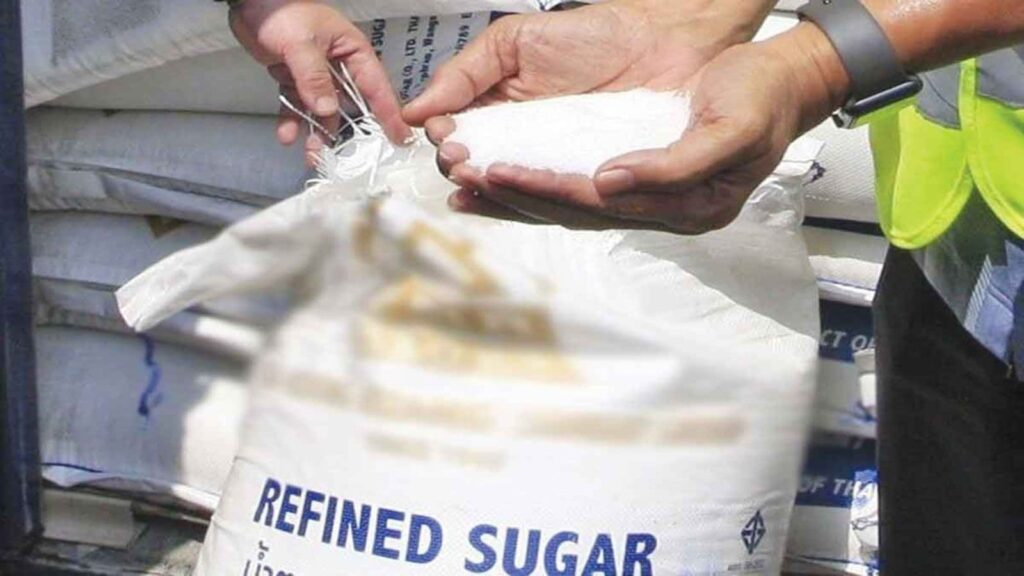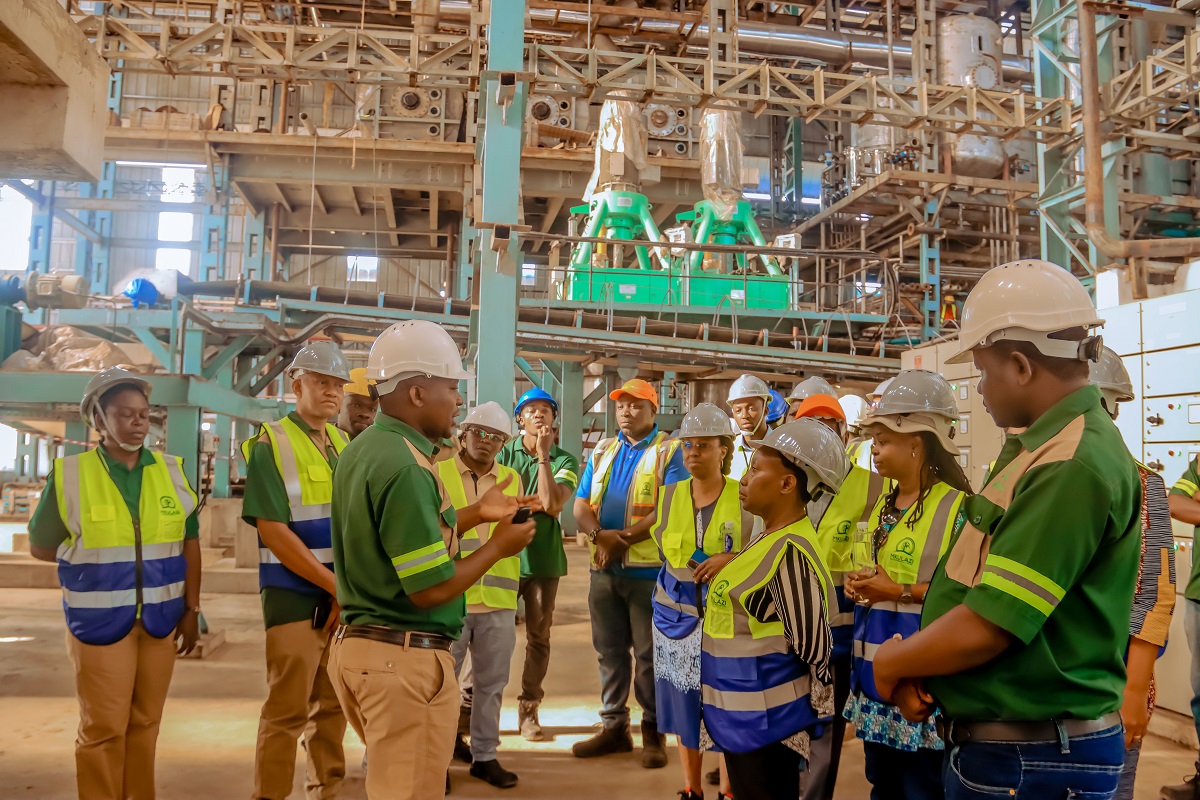Tanzania sugar output on steady rise as new plant starts milling
- Tanzania sugar output increasing.
- New factory launch to bridge demand gap.
- President Samia urges sustainability in sector.
The Tanzania sugar industry is experiencing growth, with production nearing self-sufficiency but a gap still exists between domestic demand and production. According to sector authorities, the country’s annual sugar demand is in excess of 600,000 tonnes, while production is nearing this demand, but it is still not quite there.
“The government has a target to increase production to 756,000 tonnes by the end of 2025 to meet both local and industrial needs, as well as for export,” reads a press release shared during a recent opening of yet another sugar factory.
The factory launch was graced by President Samia Suluhu Hassan, who officially opened the multi-billion Mkulazi Sugar Factory at Mbigiri Estate in Kilosa District, Morogoro Region.
In her comments about the Tanzania sugar industry, the president admitted that there have been what she described as ‘historical failures of government-run factories,’ adding that there is need for “meticulous management to ensure the factory’s success and sustainability.”
President Samia called on the project manager to oversee it “diligently and responsibly, ensuring strict adherence to factory policies, laws and regulations.”
“This project must be sustainable… Ignore any outside interference and uphold our standards. Flexibility is crucial, but the factory’s integrity is paramount for the nation’s benefit,” the president ordered.
Additionally, she warned; “If this project fails, you fail with it. Success is yours to share,” President Samia said quoting former Ethiopian leader Meles Zenawi. “It is important for the factory to ensure workplace safety by providing protective gear and health insurance for all workers,” the president advised.
She also urged the planting of trees to protect the environment both inside and outside the factory.
Mkulazi Sugar Factory is the result of strategic partnership between the National Social Security Fund (NSSF) and the Prisons Corporation Sole (PCS). Together, the two funds have formed the Mkulazi Holding Company Limited (MHCL) with key investment in sugar production in a bid to expand the Tanzania sugar industry.
The company is predominantly owned by the national savings scheme, NSSF, which holds a 96 per cent stake, while PCS owns the remaining 4 per cent, explains the press release.
According to the repo, Mkulazi Sugar Factory has an annual production target of 50,000 metric tonnes. Other than sugar production, Mkulazi aims to produce bio-ethanol, particle boards and pulp.
“We need to work together to ensure its success. It is crucial for national production and must operate regardless of any changes. As a government-owned factory, it should not be affected by private sector fluctuations,” the president insisted.
“We experienced a minor sugar shortage when heavy rains occurred early this year and sugar was hoarded, causing prices to skyrocket. With factories like this, regardless of the weather, we can ensure a steady supply without conflicts,” the president added.
Citing investment bottlenecks, President Samia pledged that the government would review the loan limit policy for local investors, which currently hinders domestic investment.
On his part, MHCL CEO Selestine Some said Mkulazi Sugar Factory could produce 50,000 tonnes annually, including brown sugar for household consumption and refined industrial sugar.
“The factory can also generate 15 megawatts of electricity, with 7 megawatts used internally and 8 megawatts supplied to the national grid,” the CEO detailed.
“We have agreed with Tanesco, signed all contracts and completed the construction of the power transmission line to Msamvu substation,” he revealed.
According to the CEO, construction of the factory began in July 2021 and was completed in November 2023. “Production commenced officially in July this year after three months of trials. The factory can produce 200 to 300 tonnes of sugar per day,” he further detailed.
He said the company has sugarcane plantations covering 4,856 hectares, with 3,600 hectares dedicated to cane cultivation and of these, he said so far, 3,380 hectares have been cultivated.
What’s more, “the factory sources sugarcane from 304 out growers in Mbigiri, cultivating 900 hectares, which can produce 30,754 tonnes of sugarcane, to be purchased by the factory in the 2024/2025 season,” he detailed.
On his part, Minister for State, Prime Minister’s Office (Labour, Youth, Employment and Persons with Disability), Ridhiwani Kikwete, recalled that President Samia authorised the factory’s construction shortly after her inauguration.
He said the government funded the project and allowed the PCS to provide land for the investment. “This construction has helped reduce youth unemployment, with 92 percent of the 2,176 formal and over 7,000 informal jobs created at the factory all occupied by Tanzanian youth under 45,” Kikwete revealed.
Seconding Kikwete, Minister of Agriculture Hussein Bashe said the Sugar Board of Tanzania (SBT) is currently reviewing regulations to protect the factory and reduce the importation of 50,000 tonnes of industrial sugar.
“By June next year, the regulations will be ready,” he detailed.
To top it off, Minister for Industry and Trade Dr. Selemani Jafo said the new factory complements existing planta in Kilombero, Kagera, Mtibwa and Bagamoyo, and together, they will significantly boost Tanzania’s sugar production.
According to him, this expansion is expected to meet the national demand of 802,000 tonnes, comprising 250,000 tonnes for industrial use and 552,000 tonnes for household consumption.
Notably, leading sugar producers in Tanzania with capacity in brackets are the Kilombero Sugar Company Limited (116,495 tonnes), Tanganyika Planting Company Limited. (101,226), Kagera Sugar Limited (50,207), Mtibwa Sugar Estates Limited, production figures not availed.

Also Read: Tanzania unit fuels Equity Group to $267 million half-year net profit
Tanzania sugar industry overview
Tanzania sugar production is on the rise, with a target of reaching 756,000 tons by the close of 2025 this according to the ministry of agriculture. The government is actively involved in boosting the industry and has put in place various initiatives including revamping existing factories as well as encouraging farmers to cultivate more cane.
According to the ministry of agriculture, while production is increasing, Tanzania still relies on imports to meet the growing domestic demand.
Major sugar producers in Tanzania include Kilombero Sugar Company, Tanganyika Planting Company (TPC), Kagera Sugar, Mtibwa Sugar Estates, and Bagamoyo Sugar Factory and now the Mkulazi plant is set bolster output.
Notably, with growing demand, the Tanzania sugar industry is attracting new investment, with projects like the $240 million investment put in Kilombero Sugar Company to expand its production capacity.
“The overall objective is to achieve self-sufficiency in sugar production and potentially become an exporter,” president Samia said recently.
However, challenges persist. The Tanzania sugar industry faces challenges like fluctuating prices, there are also mounting concerns about fair competition, and the need to ensure a consistent supply of affordable sugar.
Share this content:





Post Comment